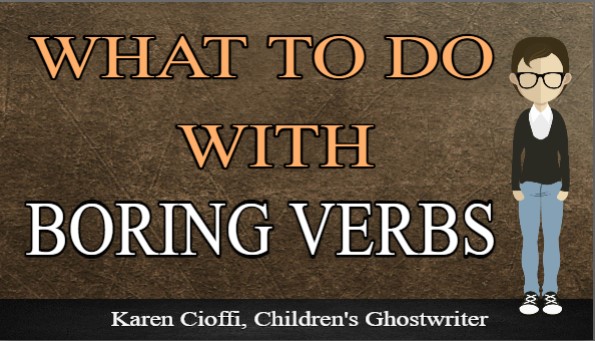Surprisingly, when writing, there are instances when using dull verbs in your sentence works better than swapping them out with stronger verbs.
It seems, the benefit of using strong verbs in place of weak verbs to make a sentence more lively depends on a number of factors, such as the audience, the tone you’re setting, the intent of that sentence, and so on.
Suppose you’re writing about a six-year-old playing, you may not want to switch out “play” with compete, cavort, or challenge.
Example:
Dull verbs: Joseph played with Eric until it was time to take a nap.
Vibrant verbs: Joseph cavorted with Eric until it was time to snooze.
In this sentence, the alternative verbs change the intent of the sentence and aren’t age appropriate.
But what if:
Dull verbs: Joseph threw the ball high into the air, then ran to catch it.
Vibrant verbs: Joseph hurled the ball up into the air, then raced to catch it.
In this particular sentence, the vibrant verbs work much better, and it’s still age appropriate.
So, while it’s important to write with active, powerful, or impressive verbs, sometimes the regular, passive word works better. You need to be the judge of what will work best for a particular sentence.
It’s also important to be careful when using synonyms. I looked up “played” and the initial synonyms found were for being deceived, not the act of having fun.
Here’s a list of helpful alternatives to weak, dull verbs.

Source: www.grammarcheck.net
I’m a working children’s ghostwriter, rewriter, and coach. I can help turn your story into a book you’ll be proud to be author of, one that’s publishable and marketable. Or, maybe you’d rather do-it-yourself. Check out my book, How to Write a Children’s Fiction Book. If your children’s manuscript is already done, check out Writers on the Move Publishing. You can contact me at: kcioffiventrice@gmail.com. Or, you can give me a call at 834---347---6700. (Please leave a message - I'll get back to you as soon as I can.)



1 thought on “What to Do About Dull Verbs”